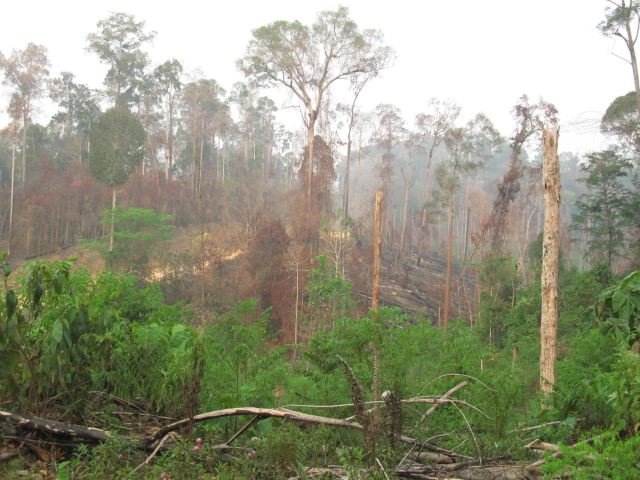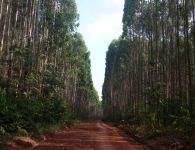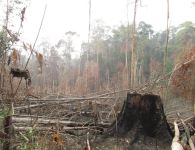Plantations International Information
Initially published at CGIAR FTA

At the 2015 Global Landscapes Online forum (5– 6 December in Paris) CIRAD, IUFRO as well as CIFOR are holding a conversation forum: Taking care of and also bring back natural tropical woodlands: Ensuring a sustainable circulation of advantages for individuals in the context of international modification.
Ahead of GLF 2015, we spoke to Plinio Sist, Supervisor of CIRAD’s Research study System BSEF. He talks of his hopes for exotic woodland administration and also a brand-new economic thinking; one that lastly allows the genuine value of forests, including carbon as well as biodiversity. Below is the job interview in complete.
In the administration of tropical woodlands there will be compromises between the lasting production of items and the preservation of environmental services. Exactly what are the best challenges today? Just how can they be fulfilled? How can the different passions be integrated?
This is central obstacle for exotic woodlands of today and also tomorrow. Up until just recently, manufacturing woodlands have been seen mainly as a source of hardwood as well as the primary purpose of foresters has actually been to make sure continual return over relatively brief turning cycles: 30 to 35 years. Typically, this sort of forestry was determined by legislation. We for that reason should promote a new standard in exotic forest administration over the coming years.
We could consider several means manufacturing as well as conservation may be integrated. The first is to give exotic hardwood a higher value and to reserve it for high-end usages. Second, prohibited logging should be eradicated in order to quit the unreasonable competition between foresters who carry out sustainable logging techniques like minimized influence logging as well as prohibited, predative loggers. Third, good forestry methods– those that boost as well as advertise ecological worths– have to be urged due to the fact that tropical manufacturing woodlands cover 400 million hectares. Actually, the location under manufacturing is currently bigger than main woodland estate.

It is clear that these will certainly be the woodlands of tomorrow, the woodlands in which we should preserve high carbon stocks as well as high biodiversity. In the context of environment modification these ecological solutions must internalized in markets as well as valued by all stakeholders.
In the past, the setting has primarily lost to company as well as growth passions. Exactly how can this be transformed?
If we intend to combat versus the impacts of environment modification temporary revenues, based upon the destruction of the setting, will need to lose their attraction. Woodlands, particularly exotic forests, those that hold greater than one-quarter of all carbon stock on earth, will certainly play a crucial function in mitigation and adaptation to climate change.
There will certainly need to be transformations in our intake practices and also in our sights on revenue. As an example, it’s frequently stated that forest activities could not contend economically with the high profits of commercial plantation of livestocks ranching. This is real just if the worth of ecological agencies provided by woodlands is overlooked.
If, instead, you take account of the complete expense of shedding and also replacing such high-carbon, biodiverse stock, the balance sheet begins to look quite various. In such a fairer system, conservation management of forests would appear plainly as one of the most financially rewarding venture.
With the repercussions of climate modification, these environmental expenses will boost while both the population and federal governments are ending up being increasingly more conscious that points have to transform.
What part can landscape remediation play in integrating contending passions?
If we’re to bring enable truly sound ecological Woodland administration and preservation must be carried out in connection with various other land-use preparing; forest as well as agriculture have to be seen at garden level in order to develop economically and environmentally sound land-use systems. In the tropics, vineyards will play a stronger duty, offering specific needs such as firewood, while natural wood must come to be high-value items, like furnishings. The property development of plantations need to release part of the stress on tropical woodlands.

The challenge today is not just to reconcile people’s financial interests with the defense of woodlands, however likewise to tackle climate adjustment. How is this feasible?
Protecting the globe’s staying tropical forests is a high priority. If we fail to safeguard them the penalties will be alarming for every individual in the world for several generations to come.
The extraction of 50 percent of the Amazon.com rainforest would be dreadful for the Americas all at once– drastically modifying the continental climate, with longer dry periods and also substantial penalties for agriculture efficiency.
Federal governments have an obligation to avoid this kind of dangerous climate modification, turning around the increase in CO2 and other greenhouse gases, and also quickly. As well as we wish the international could make a binding arrangement to do just this at the COP21 in Paris.
As a result of deforestation and also woodland deterioration, there are millions of hectares of land diminished worldwide, particularly in creating countries. It is approximated that, for the Amazon alone these lands extend around 20 million hectares. With strong, critical investment and technical help these millions could possibly be brought back to come to be productive again, launching the stress on all-natural woodlands.
Deforestation is not unavoidable. Federal government, civil society, as well as components of the economic sector are making zero-deforestation commitments, so there is reason to hope.
Your session will cover forests in the Amazon, Congo Basin as well as Southeast Asia. In South East Asia most woodlands have been logged and are currently entering a second cycle with unidentified lasting penalties. Can you describe the situation and difficulties for South East Asia?
The major difficulty for South East Asia is to protect and maintain not only the staying primary forests yet likewise production forests, considering that also those lands nurture really high biodiversity as well as carbon stocks.
The Indonesian halt on brand-new clearing licenses in primary natural forests and peatlands, revealed in May 2011, should be encompassed the already existing giving ins. The influence of the intensive silvicultural practices in these woodlands must be examined at broad scale, especially in Borneo and also West Papua.
The environmental worth of South East Asia’s logged woodlands — that is, those forests logged 20– 30 years ago– have to be identified, as a matter of necessity. The region needs to research, create as well as set up brand-new silvicultural techniques aimed that integrate hardwood production with the upkeep of ecological services.
Policymakers should recognize that managed exotic woodlands are the woodlands of the future which they will certainly play a significantly important duty in the battle against unsafe environment adjustment and also biodiversity loss. Taken care of tropical forests are absolutely worth conserving.
Exactly what do you intend to attain by taking part in the 2015 International Landscapes Forum?
I hope we will certainly be able to sensitize the viewers to the relevance of exotic production woodlands; to keeping them in proficient shape. The danger is always that, as soon as logged of their most valuable timber, these forests are overlooked as well as often converted right into meadow or industrial haciendas, such as oil palm. However, in a globe dealing with the twin situations of environment change and biodiversity loss, that come close to is obsoleted. These woodlands are very valuable, for numerous reasons, not least for the duty they can play in adaptation and also mitigation. At the exact same time, lots of can still give lumber as well as various other products, consisting of food.
Plantations International
